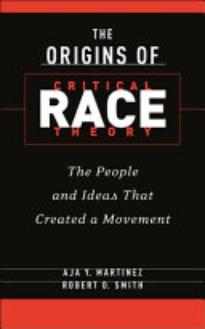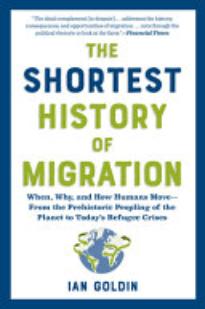Thomas J. Davis
137 Articles
Last 30 days
Last 6 months
Last 12 months
Last 24 months
Specific Dates
From:
To:
PREMIUM
Slavery After Slavery: Revealing the Legacy of Forced Child Apprenticeships on Black Families, from Emancipation to the Present
With its data-filled appendix, this instructive inquiry into post–Civil War U.S. history beckons readers to see what can be learned from tracing survivors of ongoing injuries from white supremacy’s extensions of slavery.
PREMIUM
Freedom: Memoirs 1954–2021
Merkel’s easy prose offers an appealing read with instructive political and social analysis and commentary, replete with engaging insights into not only the woman herself but also major political developments and personalities of the early 21st century.
The Origins of Critical Race Theory: The People and Ideas That Created a Movement
 This absorbing narrative with textbook clarity is a must for readers interested in the facts of CRT and how it understands the U.S. legal and political systems’ impact on systemic racial inequality. Highly recommended.
This absorbing narrative with textbook clarity is a must for readers interested in the facts of CRT and how it understands the U.S. legal and political systems’ impact on systemic racial inequality. Highly recommended.
The Shortest History of Migration: When, Why, and How Humans Move—From the Prehistoric Peopling of the Planet to Today and Tomorrow’s Migrants
 This engaging and informative model of accessible scholarly synthesis, with noteworthy instructive illustrations and explanatory sidebars, deserves attention from policy makers and publics worldwide. Advanced secondary and college students and general readers can use it as a world history primer.
This engaging and informative model of accessible scholarly synthesis, with noteworthy instructive illustrations and explanatory sidebars, deserves attention from policy makers and publics worldwide. Advanced secondary and college students and general readers can use it as a world history primer.
PREMIUM
The African Revolution: A History of the Long Nineteenth Century
An interactive history in which Africans and Europeans together played parts in transforming the continent in the modern age. Will appeal to students of Africa and general readers prepared for a fresh perspective.
PREMIUM
Morningside: The 1979 Greensboro Massacre and the Struggle for an American City’s Soul
Shetterly gives readers a compelling narrative of personal stories about the 1979 Greensboro massacre and its legacy in the context of Greensboro’s history, the Black liberation movement, and political and revolutionary aspirations to end the nation’s racial disparities and exploitation of the working poor.
Lovely One
 Jackson’s story is a poignant reflection on time, place, and a nation’s history. This is a lovely, absorbing, candid, inspirational memoir. Ideal as a motivational read, particularly for young adults and especially for women and people of color.
Jackson’s story is a poignant reflection on time, place, and a nation’s history. This is a lovely, absorbing, candid, inspirational memoir. Ideal as a motivational read, particularly for young adults and especially for women and people of color.
PREMIUM
The Warehouse: A Visual Primer on Mass Incarceration
This important, insightful book urges readers to push beyond political or popular rhetoric to address the unconscionable human and social costs of a misguided and dehumanizing system of injustice.
PREMIUM
The Black Utopians: Searching for Paradise and the Promised Land in America
This enticing mix of personal and general history of Black utopian safe spaces promises to engage readers interested in reckoning with the past and present of Black American experiences and milestones.
ALREADY A SUBSCRIBER? LOG IN
We are currently offering this content for free. Sign up now to activate your personal profile, where you can save articles for future viewing










